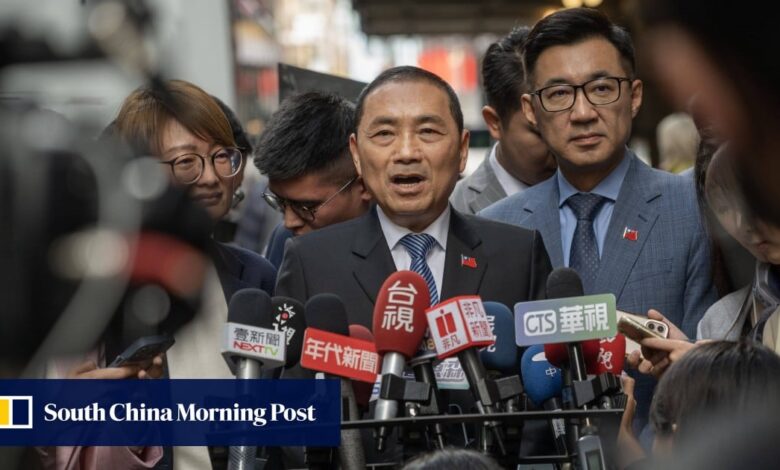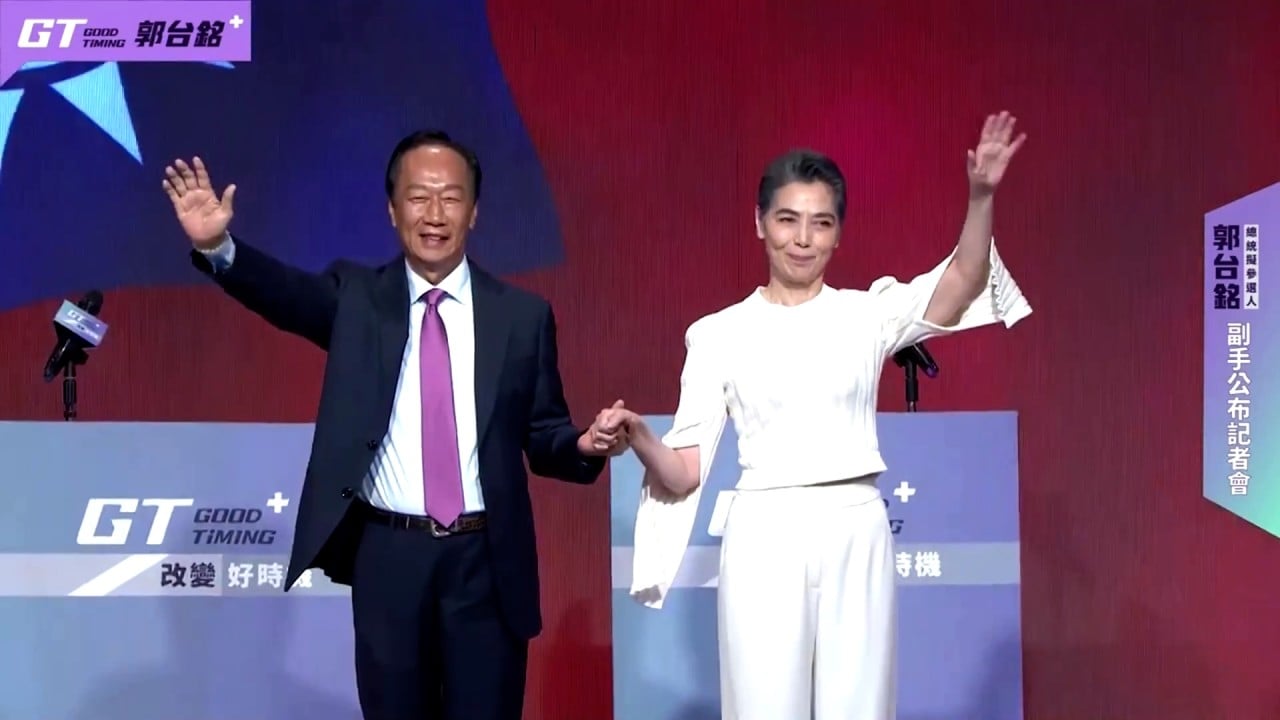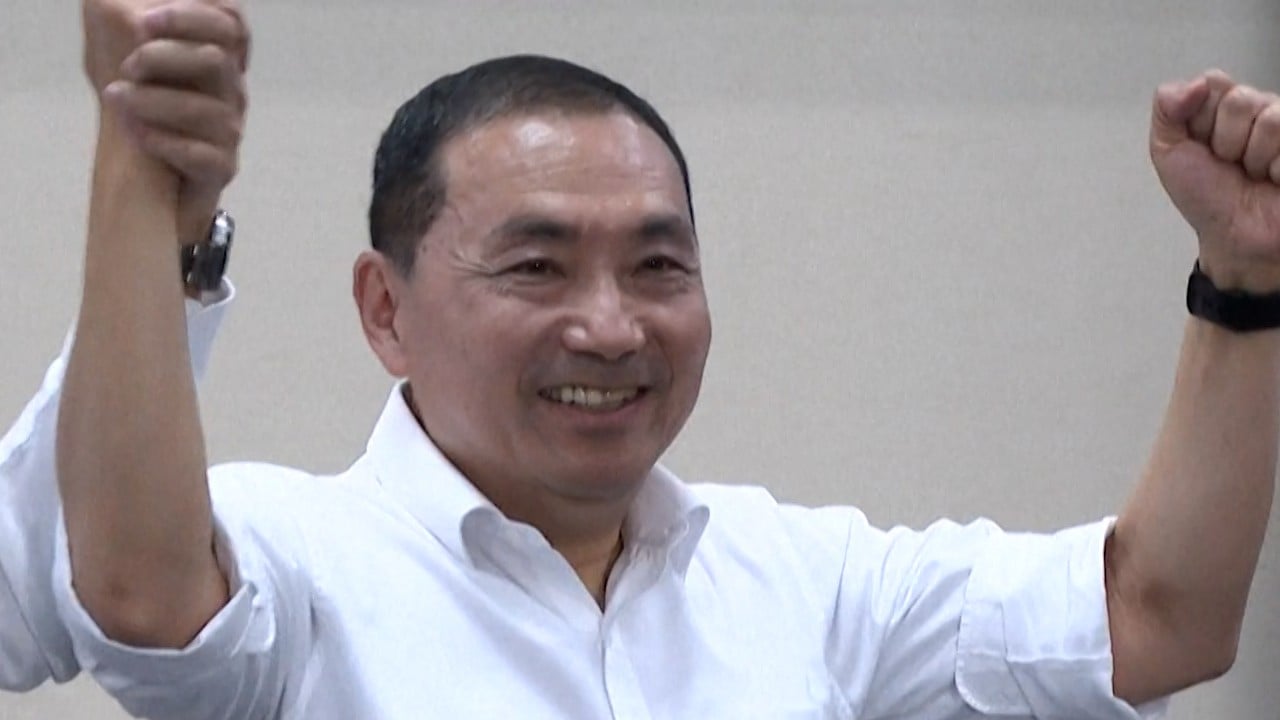Taiwan election: KMT’s Hou Yu-ih pledges strong military and talks to keep Beijing at bay

[ad_1]
He also reaffirmed Taiwan’s role as a responsible stakeholder in the region, while vowing to avert war with mainland China through offensive and defensive means and negotiations.
“Taiwan’s most important priority should be to strengthen its national defence and deter the use of force by mainland China,” Hou wrote.
Hou, 65, was officially nominated by the Kuomintang in July to run for the island’s top post. He was in the police for three decades before becoming the mayor of New Taipei City in 2018.
In the article “Taiwan’s Path Between Extremes”, Hou called for proactive pragmatism and proposed the “three Ds” strategy – deterrence, dialogue and de-escalation – to maintain stability in the strait and broader Indo-Pacific region.
Hou said he believed that peace would be maintained through building Taiwan’s strength and by increasing dialogue with Beijing.
Beijing claims sovereignty over the self-governed island and has vowed to bring Taiwan under its control, by force if necessary.
Facing the great disparity in military might between Taipei and Beijing, Hou said the island must creatively use available weapons and technologies, and develop innovative and asymmetric abilities to make Beijing wary of taking any rash action.
He endorsed the “1992 consensus” in line with the Constitution of the Republic of China. He also said he was opposed to Beijing’s unification plan under “one country, two systems” and demands for Taiwan’s independence.
The consensus is a tacit agreement between the former ruling KMT and the Communist Party that there is only one China but the two sides differ on what that refers to.
President Tsai Ing-wen, from Taiwan’s independence-leaning Democratic Progressive Party, has rejected the consensus, which Beijing demands as a precondition for cross-strait dialogue.
While he stressed that he would continue cross-strait communication to avoid military miscalculations, Hou asserted in the article that Taiwan was a sovereign state.
“In international intergovernmental organisations such as the Asia-Pacic Economic Cooperation [forum], it participates as an equal member alongside other countries. In the United Nations and its specialised agencies, the international community also expects meaningful participation from Taiwan,” he said.
“Continued interactions between the two sides [of the strait] on functional matters will help de-escalate future risks.
“This is what I call principled interactions on the basis of equality, goodwill, and dignity.”
PLA warplanes set new 24-hour record, destabilising security: Taiwan
PLA warplanes set new 24-hour record, destabilising security: Taiwan
In terms of Taiwan’s relationship with partners, Hou said Taiwan should continue forging close ties with the US and like-minded countries in Asia, and he would not take the US’ security support of Taiwan for granted.
Like most countries, the US – Taiwan’s biggest informal ally – does not support Taiwan as an independent state but is opposed to any unilateral change of the cross-strait status quo by force.
Cross-strait relations is a major issue in the campaign for the island’s presidential election in January.
Polling this month by online news outlet Newtalk indicates DPP candidate William Lai Ching-te is leading the race with 32 per cent of respondents in a survey selecting him as their preferred candidate. Hou attracted 21 per cent and Taiwan People’s Party candidate Ko Wen-je was on 24 per cent, while 12 per cent chose independent candidate Terry Gou. The remainder did not have a preferred candidate.
[ad_2]
Source link







